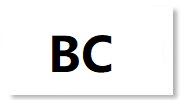Other
-
-
American BC certification
CTS
One stop testing and certification service in all fields
24-hour service line: +86-139 2959 4349
Switchboard: +86-0769-2236 0704
Email: Peter@cts -cn. com
BC certification introduction
The California Energy Commission (CEC) passed the new energy efficiency requirements for battery charging system (BCS) in early 2012, which will be implemented in February 2013. Almost all battery charging systems exported to California need to meet this requirement.
This specification is applicable to most electronic products including battery charging circuits, covering all types of battery charging systems (BCS), including consumer, industrial and commercial battery charging systems. These electronic products include notebook computers, tablet computers, power tools, mobile phones, electric toothbrushes, electric shavers, uninterruptible power supplies (UPS), mobile workstations and electric golf carts.
New energy efficiency regulations affect universal battery chargers with the following components
The power supply and charging control circuit are respectively in separate housings;
The power supply and charging control circuit are in the same housing, and the battery is in another housing;
The charging control circuit and the battery are in the same housing, and the power supply is in another housing;
The power supply, charging control circuit and battery are all in the same housing.
CEC mainly divides battery charging systems into two categories according to different test methods
Small battery charging system (small BCS, SBCs): rated input power ≤ 2 kW
Large battery charging system (LBCs): rated input power > 2 kW
The minimum energy efficiency requirements (MEPs) of battery charging system are implemented in three stages
Small consumer battery charging systems (including non-contact inductive charging systems) produced after February 1st, 2013, such as battery charging systems for mobile phones, personal care equipment and power tools;
Large battery charging systems produced after January 1st, 2014 and USB charging systems for battery capacity greater than 20wh, such as industrial battery charging systems (forklifts, etc.);
Small non consumer battery charging systems produced after January 1, 2017, such as small commercial chargers (walkie talkies used by emergency personnel, portable bar code readers, etc.).
Chargers for medical devices that require FDA approval are not covered by this regulation.
The energy efficiency requirements of the battery charging system are calculated according to the capacity of the charger. For large battery charging systems and small battery charging systems, the calculated energy efficiency values are different. Table 1 and table 2 respectively show the performance parameter requirements that large and small battery chargers should meet.
Since CEC's certification requirements for battery charging system are new rules, CEC only issued preliminary test specifications and energy efficiency index requirements in the early stage, and has been constantly updating and changing. In addition, the test specifications and index requirements and other documents are relatively simple, and many details are not explained in detail. In order to make the certification specification clearer and the certification process smoother, (August 9, 2012), CEC issued a test and certification instruction document specifically for the battery charging system BCS.


